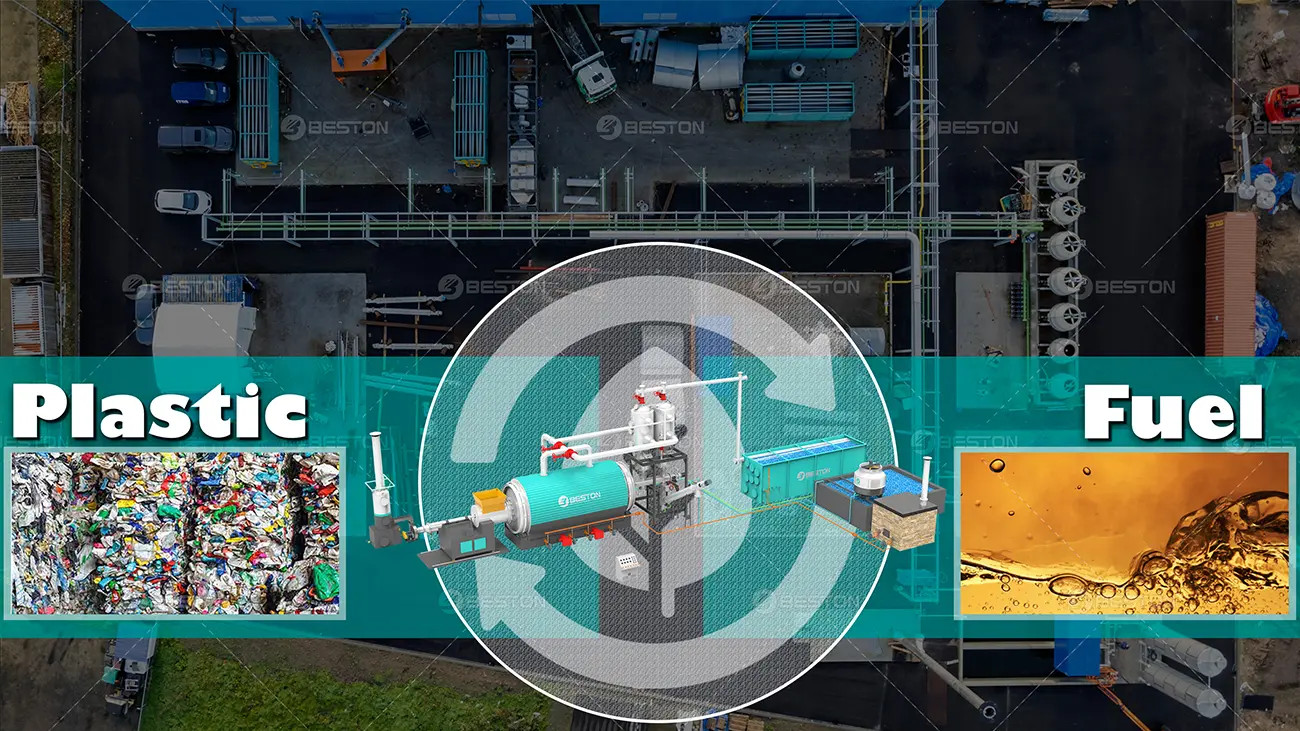Key Advantages of Using a Plastic to Fuel Machine
The growing issue of plastic waste has become a significant environmental challenge. With millions of tons of plastic discarded annually, finding sustainable methods to handle and repurpose this material is crucial. A plastic to fuel machine provides a highly effective solution by converting plastic waste into usable fuel. This technology offers several advantages, from environmental benefits to economic opportunities, making it a compelling choice for waste management and energy production.
Environmental Benefits
Plastic waste poses a serious threat to ecosystems worldwide. It is non-biodegradable and can persist in the environment for hundreds of years, causing pollution and harming wildlife. One of the primary advantages of a plastic to fuel machine is its ability to tackle this waste problem by transforming plastic into valuable fuel products.
-
Waste Reduction: By converting plastic into fuel, the plastic to fuel machine significantly reduces the volume of waste sent to landfills or incinerators. This helps mitigate landfill expansion and the associated environmental risks, such as soil and water contamination. In essence, the machine helps divert non-recyclable plastic waste from the waste stream, providing a sustainable waste disposal solution.
-
Energy Recovery: The process of converting plastic into fuel yields valuable products, such as diesel, gasoline, and kerosene. These fuels can be used to generate energy or serve as alternatives to traditional fossil fuels, reducing the demand for crude oil extraction and refining. By producing fuel from waste, the process supports a circular economy, where materials are continuously repurposed, reducing environmental harm.

Economic Opportunities
In addition to the environmental advantages, a plastic to oil plant can also generate economic value, both for individuals and businesses. The machine represents a profitable opportunity for those involved in waste management, recycling, or energy sectors.
-
Revenue Generation: Converting plastic waste into fuel provides an opportunity for businesses to generate revenue. The fuel produced can be sold to various industries, including power generation, transportation, and manufacturing. In areas where access to affordable fuel is limited, the demand for locally produced fuel can create significant economic benefits, making it a viable commercial venture.
-
Job Creation: The installation and operation of a plastic to fuel machine can stimulate local economies by creating jobs. These jobs span a range of activities, including machine operation, maintenance, and product distribution. Additionally, the need for plastic waste collection and sorting further supports employment, contributing to community development.
-
Cost-Effective Waste Management: Traditional waste disposal methods, such as landfilling or incineration, are costly and resource-intensive. By converting plastic waste into fuel, businesses and municipalities can reduce the costs associated with waste disposal. Moreover, since plastic waste is abundant and often free or low-cost, businesses can benefit from low raw material costs while generating valuable products.
Efficient Use of Resources
Plastic waste is often seen as a burden, but with the right technology, it can become a resource. The plastic to fuel machine allows for the efficient use of this waste material, turning it into something valuable while minimizing resource depletion.
-
Sustainable Fuel Production: Fossil fuel extraction and consumption are major contributors to environmental degradation. The ability to generate fuel from waste plastic provides an alternative that helps reduce reliance on non-renewable resources. As a result, the technology supports the transition towards more sustainable and eco-friendly energy sources, making it a key player in the global push for clean energy.
-
Waste-to-Energy Potential: In many regions, plastic waste is not recycled or repurposed due to logistical challenges or economic constraints. The plastic to fuel machine provides an efficient means of converting waste materials into usable energy, addressing the issue of waste-to-energy conversion. By maximizing the energy potential of plastic waste, the machine contributes to reducing the environmental footprint of waste disposal and energy production.
Technical Advancements and Innovation
Plastic to fuel technology has evolved significantly, offering improved efficiency, scalability, and ease of operation. Modern machines feature advanced design and engineering to ensure that the pyrolysis process is safe, efficient, and sustainable.
-
High Conversion Efficiency: Advanced plastic to fuel machines feature optimized pyrolysis reactors that can process a wide variety of plastic waste materials, including low-density polyethylene (LDPE), high-density polyethylene (HDPE), polystyrene (PS), and polypropylene (PP). These machines can achieve high conversion rates, turning a substantial portion of the plastic into fuel, minimizing waste, and maximizing output.
-
Automation and Control Systems: Many plastic to fuel machines are equipped with automated control systems that regulate temperature, pressure, and feedstock flow to ensure consistent product quality. These automated systems reduce the need for manual intervention, improving safety, reducing labor costs, and enhancing overall efficiency.
-
Reduced Emissions: Modern machines are designed with emission control technologies, including filtration systems and gas treatment mechanisms, which reduce harmful emissions during the pyrolysis process. These innovations ensure that the conversion process complies with environmental regulations, making the technology both effective and sustainable.